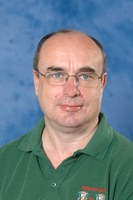MIST
Magnetosphere, Ionosphere and Solar-Terrestrial
MIST recognised in 2018 RAS awards
MIST Council would like to congratulate those who have been recognised for contributions to the field by the Royal Astronomical Society recently, but particularly we would like to congratulate those members of the MIST community who are to be honoured at the next National Astronomy Meeting.
Emma Bunce has won the Chapman Medal for outstanding contributions to the understanding of the magnetospheres of gas giants, Matt Taylor has won the Service Award for his exceptional work in co-ordinating and contributing to ESA's Rosetta mission, and Jim Wild has been awarded the James Dungey lectureship for his excellent and highly relevant work on substorms and reconnection in the magnetotail. We would also like to congratulate Kerri Donaldson Hanna for winning the Winton Award for planetary science.
MIST Council applauds each of the winners, alongside the other academics who will be recognised in Liverpool this spring!
New MIST councillors in 2017
Congratulations to Jasmine Sandhu and Jonny Rae, both at MSSL, who have been elected (and, in Jonny’s case, re-elected) to MIST Council. They join Ian McCrea (Chair - RAL), Sarah Badman (Lancaster), Luke Barnard (Reading) and John Coxon (Southampton), all of whom continue in their posts.
Rishbeth Prizes 2017
Congratulations to Jade Reidy (University of Southampton) and Mervyn Freeman (British Antarctic Survey) for winning this year's Rishbeth prizes for their presentations at the National Astronomy Meeting at the University of Hull this July.
Nigel Wade

It is with deep sadness that we have to inform the MIST community of the untimely death after a short illness of Nigel Wade who worked in the Radio and Space Plasma Physics (RSPP) group at Leicester for over 30 years.
New Members of MIST Council
After a hard-fought campaign by the five candidates, the results of the MIST Council elections are now in!